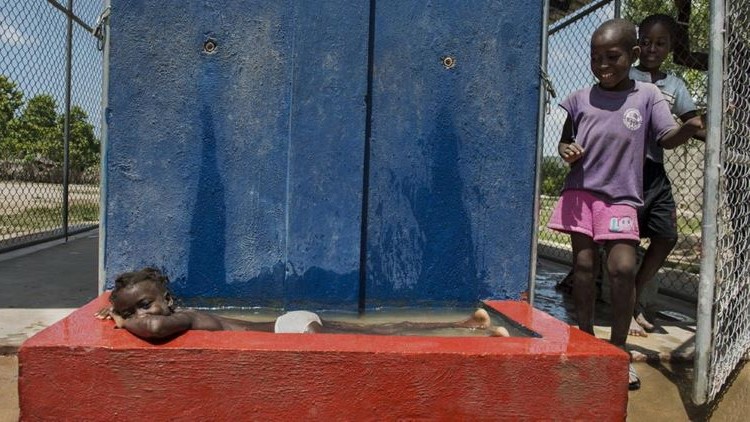The Diplomat
The Government of Spain, through the Spanish Agency for International Development Cooperation (AECID), has activated the humanitarian action agreement it has with the NGO Plan International to alleviate the extreme situation of food insecurity suffered by a large part of the population of Haiti.
Haiti has one of the highest levels of food insecurity in the world, according to the United Nations World Food Program (WFP), which states that almost half of the population, some 4.9 million Haitians suffer from food insecurity and that, of these, 1.8 million are in extreme food shortages.
With the activation of the agreement with Plan International, the Agency will contribute 152,257.76 euros for an initiative that has a total cost of 174,687.25 euros and which will provide economic support to some 320 families – some 1,600 people – in the Northeast department of Haiti and improve the protection of its most vulnerable members through actions to raise awareness of children’s rights and the specific risks suffered by children and adolescents in contexts of food insecurity and hunger.
The UN estimates that nearly 1.2 million children in Haiti are in need of humanitarian assistance, an increase of 64% since 2022, as a result of the deteriorating security situation. Risks to children and adolescents include recruitment, intra-urban and cross-border movement, sexual assault and other types of gender-based violence. It is estimated that more than 500,000 children are in need of psychosocial support and 4.2 million Haitian children have been deprived of their right to education.
Since 2021, AECID has disbursed a total of €5,288,000 for humanitarian action initiatives in Haiti. Following the last earthquake that affected the country in August 2021, AECID deployed an emergency response that included the deployment of the START Team, the contribution to the International Federation of the Red Cross emergency appeal, the activation of various emergency agreements with NGODs and cooperation with UNICEF in the rehabilitation of educational infrastructures.
In 2022, Haiti became part of the Spanish Humanitarian Action Strategy for Latin America and the Caribbean, with a significant increase, up to a total of 2,250,000 euros, in Spanish humanitarian funds. With this amount, the Agency contributed with the International Committee of the Red Cross (ICRC) to improving access to health services and protection and mitigating the impact of armed and other forms of violence, and financed the initiatives of the World Food Program (WFP). It also supported the Pan American Health Organization (WHO/PAHO) in the emergency response to the outbreak of cholera in the country with 150,000 euros that same year.
In 2023, AECID plans to increase its humanitarian aid contribution to the Caribbean country with a total of 2,350,000 euros. The Agency will continue to support the ICRC and the WFP in their emergency response and will contribute with the United Nations International Organization for Migration (IOM) to support the displaced population in the most troubled neighborhoods of the capital. It will also finance a project to assist victims of sexual violence run by the NGO AVSI. In the area of development cooperation, Spanish Cooperation is carrying out projects in Haiti valued at more than 68 million euros, prioritizing its work in the sectors of water and sanitation, food security, education, environment and gender.







